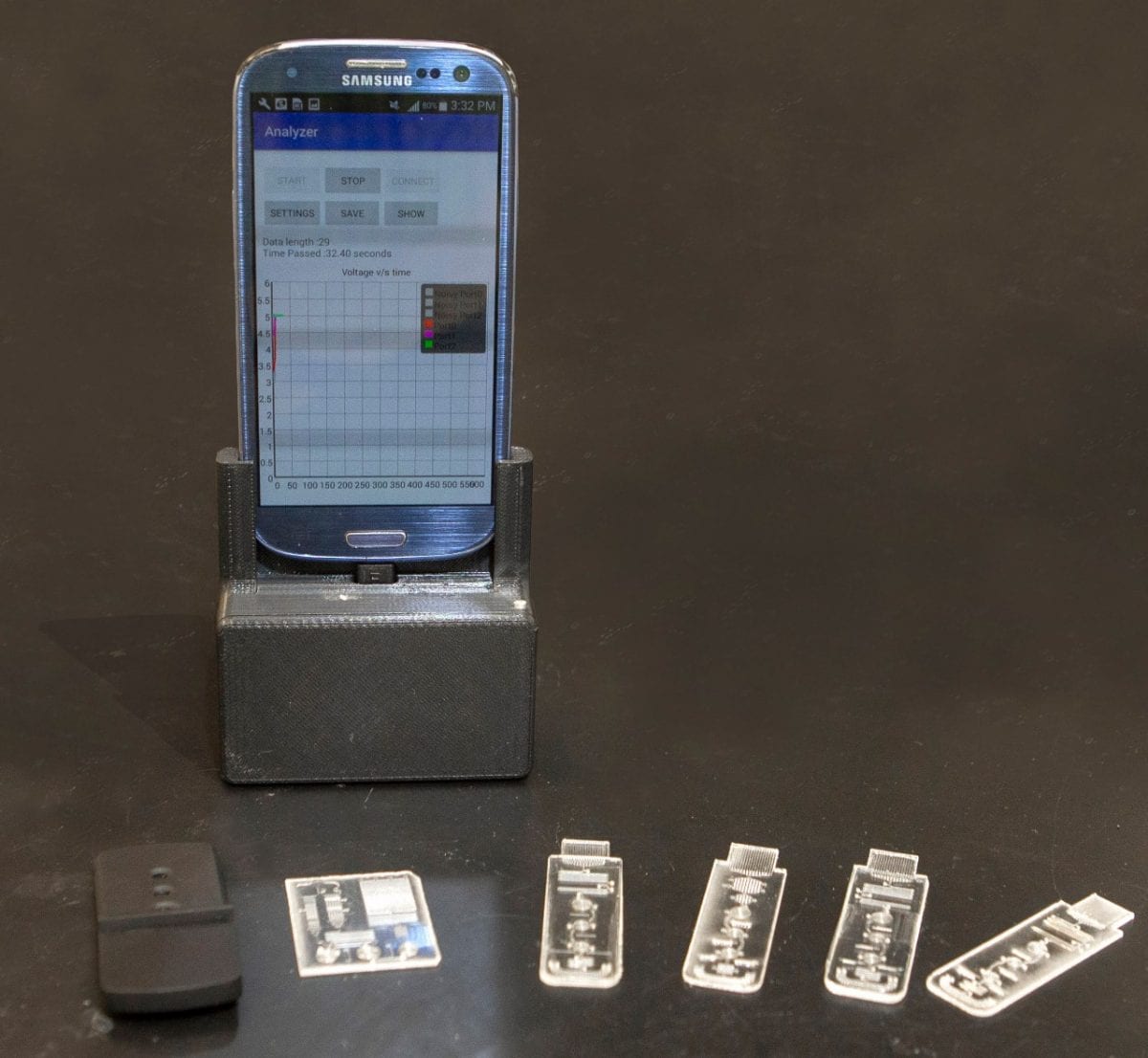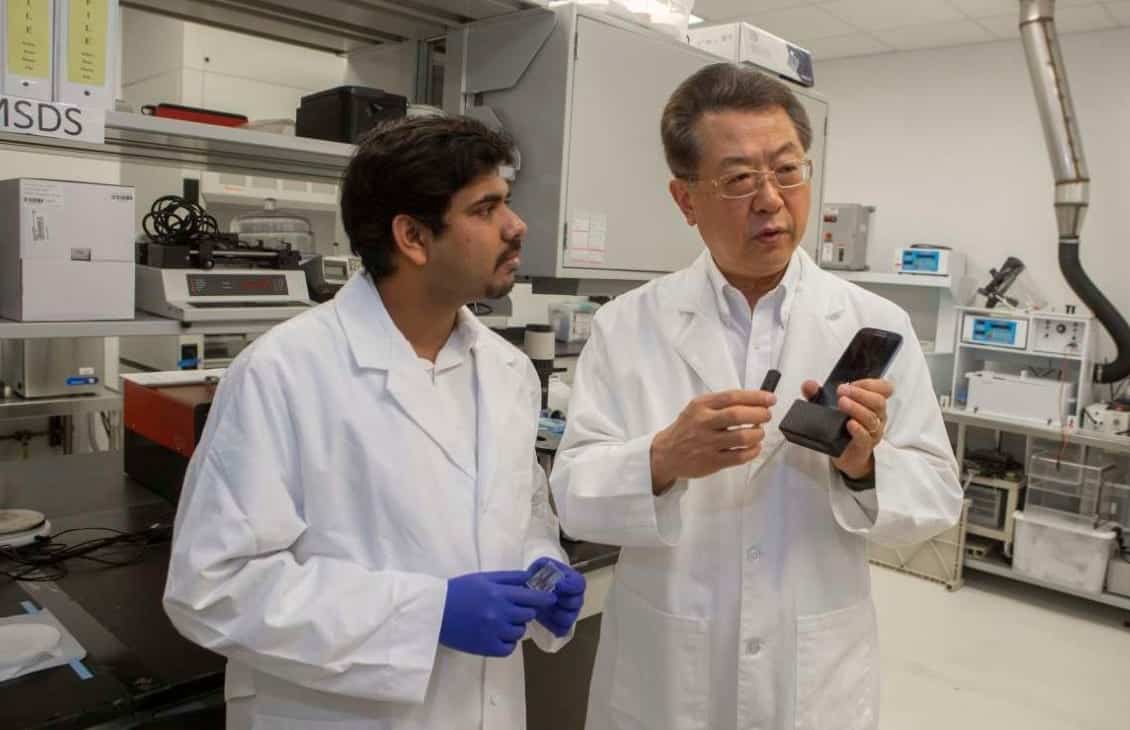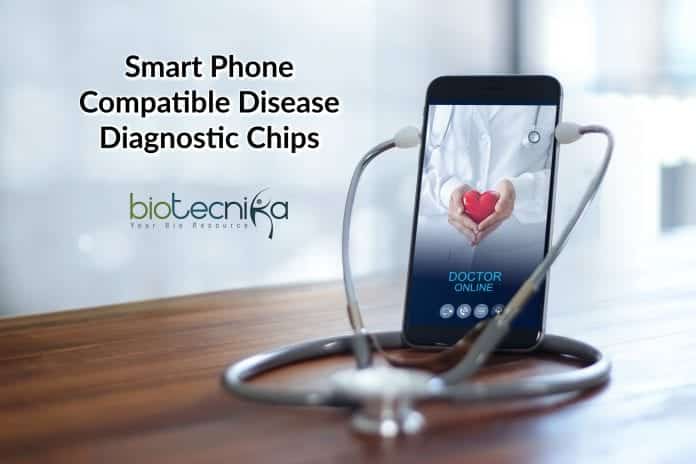Smartphone As Diagnostic Tool For Many Infections And Mental Illness
Using your smartphone to track your medical condition or diagnose illness is something scientists had been eagerly seeking for a long time.
Combining the two in one device is has been impractical so far. The regulatory headache that would come after labeling phones as medical devices are not preferred by tech companies.
But the engineers at the University of Cincinnati have come up with the best thing. A tiny portable diagnostic tool that plugs into a smartphone, sending the test results automatically to a doctor’s office through a custom app has been developed by a UC professor Chong Ahn.
They developed a custom plastic lab chip, which is smaller than a credit card to diagnose infectious diseases like Malaria, HIV, Lyme disease, Coronavirus, or other countless health conditions like anxiety and depression. A single drop of saliva or blood on the chip is sufficient for the test.
The chip gets the power and test protocol from the phone connected to it. To test the saliva, a patient can simply put the chip on his or her mouth and then put back the chip into a slot in the box.
The
test results can be automatically sent to the patient’s doctor through a custom app.
Ahn and his team conducted the test for malaria using the smartphone. But the device can be used for countless other infections and also measure hormones related to stress.
Everyone has a smartphone, and if it can be used to test infectious diseases like coronavirus, it would be a breakthrough diagnostic tool anyone can use at home. Currently, it takes several hours or even days to diagnose diseases in the lab.
Nature journal Microsystems & Nanoengineering published Ahn’s study on Malaria in January.
Ahn is a distinguished research professor at the University of Cincinnati’s College of Engineering and Applied Science. He directs two centers on campus, the Ohio Center for Microfluidic Innovation and the Engineering Research Center Cleanroom.
The lab chip that he discovered uses natural capillary action to draw a sample into two channels called a “microchannel capillary flow assay.” One of the channels will mix freeze-dried detection antibodies with the sample. When the split samples combine again, the other channel that contains a freeze-dried luminescent material will read the results on three sensors. The device is inexpensive, accurate, and easy to use.
Sthitodhi Ghosh, a doctoral student under Ahn, said the biggest advancement in this lab chip is its design of tiny channels that can draw the sample through the sensor arrays through a natural capillary flow. The entire process on the chip is automatic.

The chip can help doctors to correlate how patients feel with the actual biochemical changes in the body through regular testing of biomarkers and hormones associated with anxiety or depression.
Ahn wants to commercialize his new device, and he is pursuing a patent for the same. Mico Biomed, a medical diagnostics company at Cincinnati, is a co-author of the study.
Making people feel comfortable and confident enough to use this unfamiliar diagnostic tool with smartphones at home would be a big challenge.
At the same time, the large amount of data psychiatrists could get from the tests will help them to understand mental illness’s biochemistry better.



























